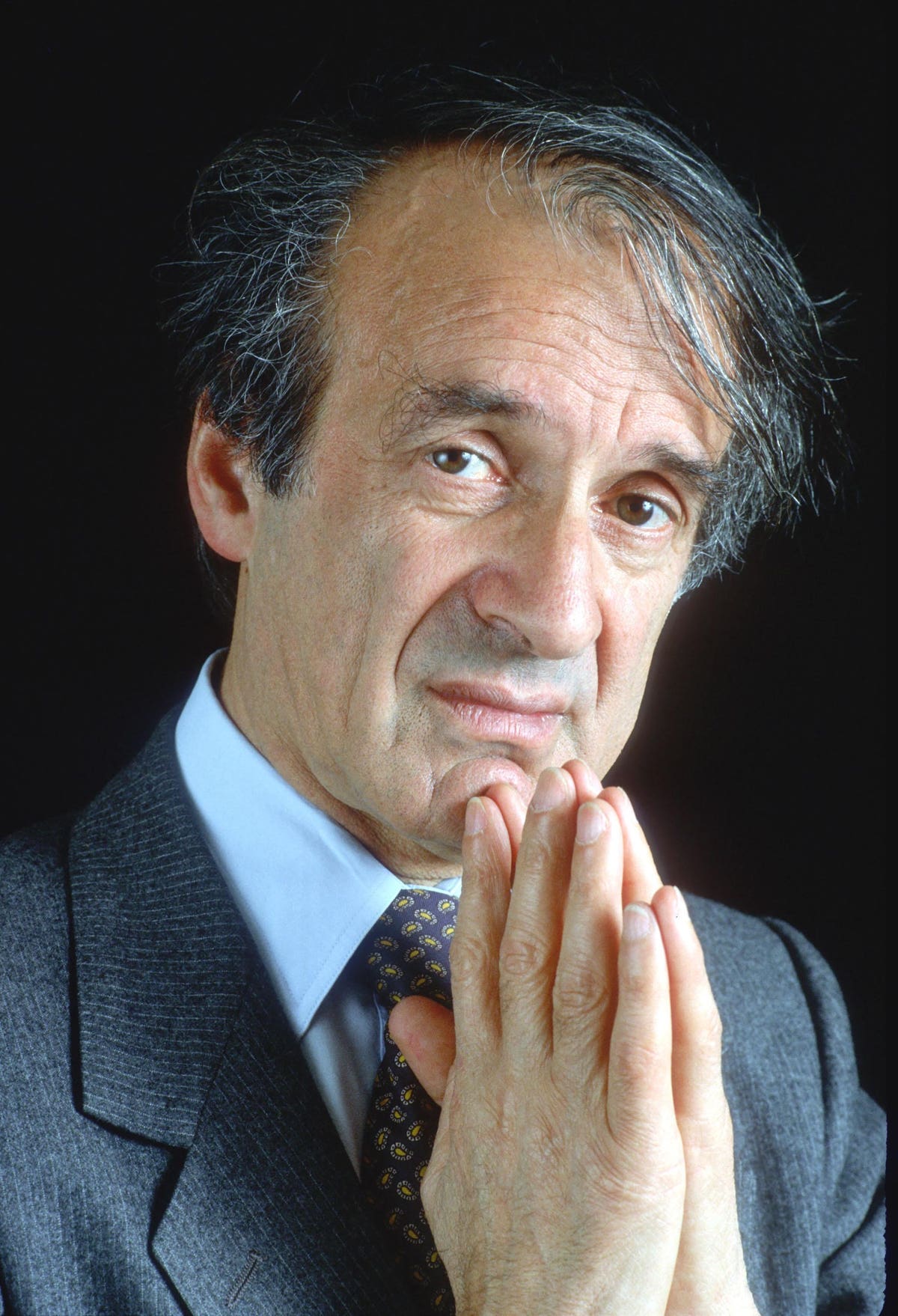Many speeches will be given today in recognition of America’s independence from Great Britain in 1776, but the quest for freedom is worldwide. For this year’s celebration, let’s look at a superb speech that addresses freedom with a universal perspective: the Nobel Peace Prize acceptance speech by Elie Wiesel, the Holocaust survivor who became a noted political activist, writer, and speaker.
Although his Nobel speech dates back to 1986, Wiesel is very much in the current news as a result of a new biography, “Elie Wiesel: Confronting the Silence,” by New York Times writer Joseph Berger. A Wall Street Journal review of the book describes Wiesel as an “international voice of conscience…whose refusal to remain silent …[has] led many to liken him to a prophet, a sentiment echoed by the Nobel committee’s description of him as a ‘messenger to mankind’ when it awarded him the Peace Prize.”
Watch Wiesel’s speech for how this “messenger to mankind” delivered his powerful message, and you’ll see him deploy eight fundamental techniques—four of delivery and four of rhetorical—that you can incorporate in any of your own presentations.
Messenger: Four Delivery Techniques
First, make your presentation conversational. Although Wiesel was speaking in a formal setting and reading from a prepared script, he addressed his distinguished international audience conversationally, as if there was no lectern separating them.
A second is to engage with your audience. Although Wiesel referred to his prepared script repeatedly, he did so very briefly, spending more time looking at the audience. In doing so, he engaged with them, avoiding the common trap of reading to them.
Another technique is to use a crisp cadence. You can do this by adding pauses between your phrases. As you play the Wiesel video, close your eyes briefly and listen to his rhythmic cadence, particularly his pauses. Pauses give your audience time to absorb your message.
Fourth is to convey emotions by using inflection. While listening to Wiesel’s video, hear how he uses the rising and falling pattern of his voice to convey the meaning and emotion of his words.
Message: Four Rhetorical Techniques
First, help your audience identify with your story by including a human interest anecdote. Audiences relate to stories about people. Wiesel began by referencing his own boyhood, “I remember: it happened yesterday or eternities ago. A young Jewish boy discovered the kingdom of night. I remember his bewilderment; I remember his anguish…”
A second technique is antithesis, a figure of speech in which two contrasting ideas are juxtaposed in parallel, adding an extra dimension to the basic idea. Wiesel used antithesis when he said, “Neutrality helps the oppressor, never the victim. Silence encourages the tormentor, never the tormented.”
President Abraham Lincoln used antithesis in his Gettysburg Address, “The world will little note, nor long remember what we say here, but it can never forget what they did here.”
So did President John F. Kennedy in his Inaugural Address, “Ask not what your country can do for you, ask what you can do for your country.”
Each of these examples of antithesis provided an added dimension to the basic idea and enhanced the audience’s understanding.
Another is to begin your presentation with a fact or a detail. Then refer to that same element again at the end, as a bookend. At the beginning of Wiesel’s speech, soon after he spoke about his boyhood, he said, “And now the boy is turning to me: ‘Tell me,’ he asks. ‘What have you done with my future? What have you done with your life?’” Fifteen minutes later, Wiesel bookended the boy’s question with his own answer, “This is what I say to the young Jewish boy…”
Fourth, conclude your presentation with a Call to Action. After Wiesel’s bookend answer, he segued into his broader, universal message about freedom—his call to action, the essential conclusion to every story. He said, “What all these victims need above all is to know that they are not alone; that we are not forgetting them; that when their voices are stifled we shall lend them ours, that while their freedom depends on ours, the quality of our freedom depends on theirs.”
While Elie Wiesel spoke in the formal, high profile setting of a Nobel Peace Prize award ceremony in Oslo, Norway, you can deploy these same eight techniques in your next business presentation.
Read the full article here





